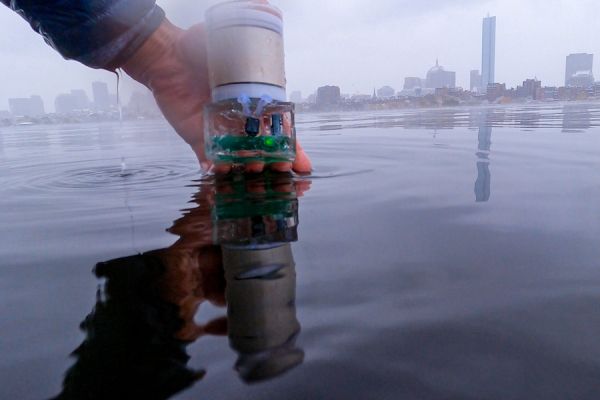GPS isn’t waterproof. The navigation system depends on radio waves, which break down rapidly in liquids, including seawater. To track undersea objects like drones or whales, researchers rely on acoustic signaling. But devices that generate and send sound usually require batteries — bulky, short-lived batteries that need regular changing. Could we do without them?
MIT researchers think so. They’ve built a battery-free pinpointing system dubbed Underwater Backscatter Localization (UBL). Rather than emitting its own acoustic signals, UBL reflects modulated signals from its environment. That provides researchers with positioning information, at net-zero energy. Though the technology is still developing, UBL could someday become a key tool for marine conservationists, climate scientists, and the U.S. Navy.
These advances are described in a paper being presented this week at the Association for Computing Machinery’s Hot Topics in Networks workshop, by members of the Media Lab’s Signal Kinetics group. Research Scientist Reza Ghaffarivardavagh led the paper, along with co-authors Sayed Saad Afzal, Osvy Rodriguez, and Fadel Adib, who leads the group and is the Doherty Chair of Ocean Utilization as well as an associate professor in the MIT Media Lab and the MIT Department of Electrical Engineering and Computer Science.
Continue reading at MIT.
Image via Reza Ghaffarivardavagh .


